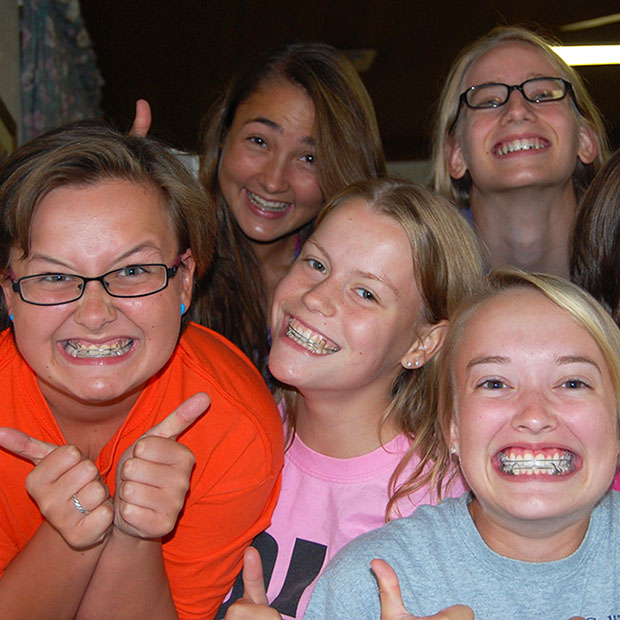Retainer Care and Maintenance

Braces-off day will get here much sooner than you think, but that won’t be the end of your orthodontic treatment.
Provided that you’re following the orthodontist’s instructions, to keep the properly aligned smile you’ve worked so hard for, you’ll need to be diligent in wearing your retainers. There are many differences between braces and retainers, including the best ways to take care of them.
Why Is It Important to Clean a Retainer?
Just like our teeth, a retainer will accumulate bacteria, plaque, and tartar over time unless it is cleaned. We keep it from building up on our teeth by brushing and flossing, and we have to clean retainers regularly too or they will soon become filmy, cloudy, foul-tasting, smelly, and covered in white spots.
If you have a removable retainer, you should rinse it with cool water and brush it with gentle soap at least once a day. Floss around a permanent retainer to keep tartar from building up around it. Threaders make flossing around them easier, as do water flossers.
How to Deep-Clean a Retainer
Daily cleanings can only do so much, however, which is why it’s important to give your retainer the occasional deep clean to keep it good as new. The hygienist will do the deep cleaning for you at your regular appointments if you have a bonded retainer, but cleaning a removable retainer at home is simple and cheap.
If you want to get special retainer cleaning tablets you can, but a simple mixture of water and baking soda will do the job very well, or water and vinegar, or hydrogen peroxide. Simply soak the retainer for a few minutes, then rinse it and let it dry. A warning, though: never use hot water or harsh chemicals like bleach!
How to Store Your Retainer
Unlike braces, retainers are often only a part-time orthodontic appliance, so storage is important. Harmful bacteria thrive in warm, damp enclosed environments — such as the inside of a closed retainer case. Keep your retainer somewhere safe and cool where it can dry fully between uses. (That’s also how you should store your toothbrush.)
Some types of retainers do better soaking in water instead of being left to dry out, so make sure to check with us about care tips for your type of retainer.
Do Retainers Really Matter?
Teeth can drift over time, so yes, retainers are important. The supporting structures holding our teeth into the jawbone take time to get used to the post-braces position. Wearing retainers as directed by the orthodontist is the best way to ensure that your jaws get used to the new position of teeth and so that they don’t start moving in new directions.
Bring Us Your Retainer Questions!
No matter what kind of retainer you have, from bonded to removable, from wire and acrylic to clear plastic, we’re here to answer your questions about their care and maintenance. Retention is a critical stage of your orthodontic treatment, and we want to help you have the best possible experience and result!
